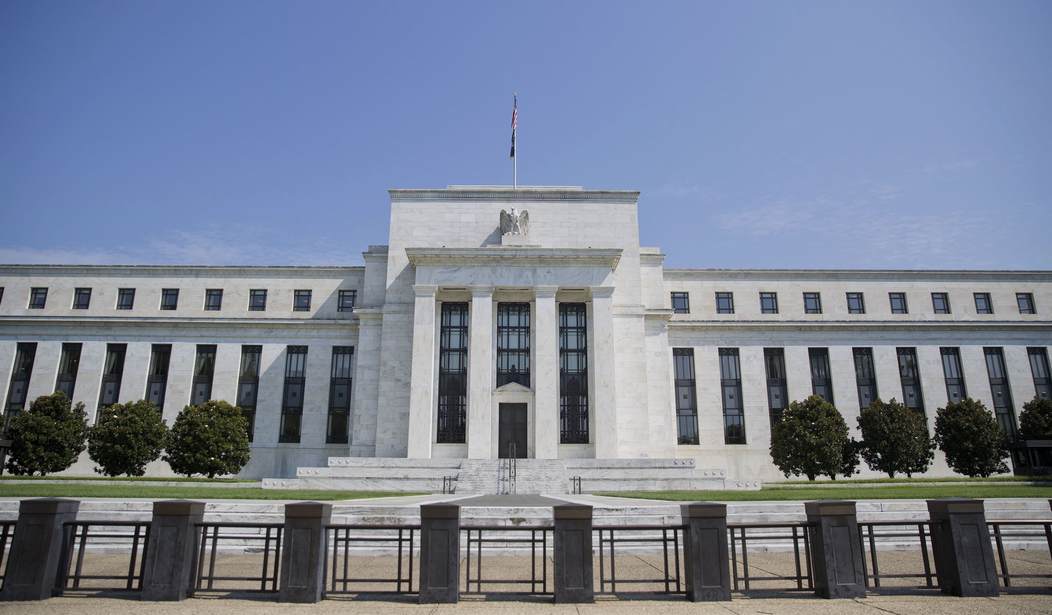Failure to raise the Federal debt ceiling limit could "roil the financial markets and cause severe economic problems," "cause profound damage to our country," and have “dire consequences.” So wrote the Los Angeles Times, Washington Post, and New York Times. But the year was 1995, not 2021.
“[O]ur country would likely face a financial crisis and economic recession,” Biden administration Treasury Secretary Janet Yellen warned the Senate Banking Committee on Tuesday.
Other ills predicted during that contentious debate were rising unemployment, reduced GDP growth, and soaring interest rates. That was at a time when President Clinton and Democrats were fighting off attempts by Republicans to link cutting the deficit to the increase in the debt ceiling and a continuing resolution on spending.
Then as now, there was a widespread misperception that failure to increase the debt ceiling would produce a default: "congressional Republicans are threatening to provoke the nation's first-ever default" (Washington Times). The Los Angeles Times reported: "the first real risk of a government default could occur November 15 [1995]." Even the then Chairman of the Federal Reserve, Alan Greenspan, warned that congressional Republicans should drop their efforts, declaring: "To default for the first time in the history of this nation is not something anyone should take in any tranquil manner."
So what happened back then? After shutting down the government for five days in late November, a temporary extension to the debt ceiling was passed, but the government was shut down again from December 16th, 1995 to January 6th, 1996, before President Clinton finally agreed to the cuts that the Republicans in Congress had been pushing and a long term increase in the ceiling was enacted.
Recommended
No default ever occurred. In retrospect, it is not surprising. Default only occurs if the government stops paying interest on the money that it owes. Not increasing the debt ceiling only means that the government is forbidden from borrowing more money and that spending is limited to the revenue the government brings in. And, with interest payments on the debt making up only a small fraction of revenue, the interest itself was relatively easy to pay.
Contrary to Democratic claims, these two shutdowns did not damage the economy. Unemployment remained constant during December 1995 and January 1996 and fell slightly in February 1996. And quarterly GDP kept chugging along, growing as faster or faster during the fourth quarter of 1995 and the first quarter of 1996 than it had over the preceding four quarters. Stock prices also continued to rise throughout the whole drama, with the Dow Jones Industrial Average rising by over 6 percent, from 4,873 on November 13th to 5,181 on January 5th.
As for interest rates, U.S. Treasury bond rates did not go up -- to the contrary, they fell almost continually during 1995 and the beginning of 1996. This indicates that, despite the warnings by the politicians and the media, investors were not at all worried about any default by the U.S. government. Had investors been concerned, they would have demanded higher interest rates to compensate them for that risk. We would have seen interest rates spike as negotiations over increasing the debt ceiling failed and the supposed default was about to occur.
Saying that there wasn't a risk of default then or now isn't to deny that there is a huge and growing debt problem, something that represents a real burden to our children and grandchildren. The current $28.8 trillion debt is huge, coming to $350,000 per family of four. With estimates that Biden’s budget plans will reach $50 trillion in debt by 2030.
True, there were problems associated with the shutdowns in 1995-96. The main drawback was that some Federal “nonessential” employees had to miss a paycheck or two. That is certainly a non-trivial problem for those employees who did not have enough money saved up. Yet, the lost paychecks were soon replaced, with those employees getting paid vacations, getting paid for not working.
But we should remember that the fiscal standoff had some long-term benefits. The budget battles during 1995-96 ended up reducing the next year's deficit to only $22 billion. And surpluses were produced over the next four years. Few thought that was possible to have surpluses before the shutdown.
Even no increase in the debt ceiling doesn’t imply default. The Biden administration will have enough tax revenue coming in to pay interest payments and essential services, including law enforcement such as the the FBI, illegal drug enforcement, border protection, air traffic control, and power grid maintenance would keep going. However, that won’t continue to be true as the government debt continues to escalate.
To Democrats, temporarily cutting government spending would be the end of the world.
The irony is that Democrats don’t need a single Republican vote to increase the debt ceiling. But Democrats want to massively increase and make Republicans complicit for the resulting debt.
They keep saying that default is Republicans' responsibility. ”I cannot believe the Republicans will let the country default," Senate Majority Leader Chuck Schumer said in August.
Biden’s warnings of “Armageddon” are just scare tactics. So are Treasury Secretary Yellen claims of "irreparable harm.” We can only hope that the lessons of 1995-96 are remembered and that members of Congress dare to vote for fiscal restraint.
Lott is the president of the Crime Prevention Research Center and the author most recently of “Gun Control Myths.” Until January, Lott was the senior adviser for research and statistics at the U.S. Department of Justice’s Office of Legal Policy.

























Join the conversation as a VIP Member